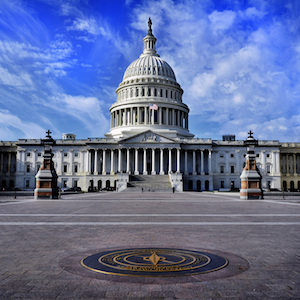
 Sens. Todd Young (R-IN) and Cory Booker (D-NJ) have reintroduced several bills to help boost retirement security for individuals and families.
Sens. Todd Young (R-IN) and Cory Booker (D-NJ) have reintroduced several bills to help boost retirement security for individuals and families.
Citing data by the U.S. Department of Labor showing that more than 40 million people do not have access to any workplace retirement plan, the pair introduced four bills Aug. 4 that, among other things, would expand automatic enrollment in retirement plans, as well as make it easier for individuals to build emergency savings.
The Retirement Security Flexibility Act (S. 2602) seeks to expand access to workplace retirement plans by giving employers more flexibility when setting up 401(k) plans for their employees. To that end, the bill would modify the existing automatic contribution safe harbor such that the initial automatic enrollment amount would be at least 3% but not more than 10%. The bill would also make it easier for plan sponsors to implement automatic escalation of contributions. Additionally, more flexibility would be provided on required employer contributions by modifying the nondiscrimination safe harbor for automatic contribution arrangements.
The Strengthening Financial Security Through Short-Term Savings Accounts Act (S. 2601) seeks to help reduce early withdrawals from retirement accounts and facilitate short-term savings by allowing employers to automatically enroll their workers in emergency savings accounts in addition to retirement accounts.
The Refund to Rainy Day Savings Act (S. 2600) would enable individuals to build emergency savings during tax time by allowing filers to save a portion of their tax refund by postponing 20% of it to a later date and placing it into a “Refund to Rainy Day Savings Program” that would be established by the Treasury Department.
The Commission on Retirement Security Act (S. 2603) calls for the creation of a federal retirement commission charged with reviewing private retirement benefit programs and submitting a report to Congress on how to improve private retirement security in the United States.
“We face a time when many Hoosier families are financially unprepared for retirement. I’m glad to reintroduce a suite of bills to boost retirement security and help Americans save for the days ahead,” Young said in a statement. “These bills include our Retirement Security Flexibility Act to improve access to retirement plans and protect against burdensome regulatory requirements, as well as our Federal Retirement Commission Act to bring together experts to advise Congress on the best solutions for retirement security.”
Added Booker: “With the pandemic forcing many families to dip into their hard-earned savings, including retirement funds, to cover unexpected costs related to challenges like healthcare costs, remote learning, and job loss, it’s essential that we provide workers with the tools they need to build savings. These bipartisan bills will help boost savings, getting workers back on a track to financial stability and a financially secure retirement.”
The SECURE Act 2.0 legislation introduced May 2 by Reps. Richard Neal (D-MA) and Kevin Brady (R-TX), the chairman and ranking member of the House Ways and Means Committee respectively, along with the Retirement Security and Savings Act introduced May 21 in the Senate by Sens. Rob Portman (R-OH) and Ben Cardin (D-MD), include provisions similar to those included in Young’s and Booker’s Retirement Security Flexibility Act. Those bills, along with forthcoming legislation by Senate Finance Committee Chairman Ron Wyden (D-OR), are expected to form the basis of a retirement security legislative package that could move later this year.
- Log in to post comments
